The previous in-person Jenkins Contributor Summit took place in 2020, just prior to the lockdowns and precautions that would change the world. Thankfully, on February 2, 2024, just prior to this year’s FOSDEM conference, we were able to gather again, in Brussels, so that we could have an in-person Jenkins Contributor Summit.
The return to in-person meant that not only could we gather in one location, but we were also able to collaborate and work together directly, something that is not normally possible due to the global spread of the Jenkins community. To make things even better, all of the Jenkins Officers and four of the five board members were able to travel to Brussels for the summit!
Massive thanks to Betacowork for providing a space that could hold the Contributor Summit.
If you want to follow along, we are including a link to the Contributor Summit slide deck to view the presentation at any time.
The day started with Jean-Marc Meessen providing an overview of the agenda.
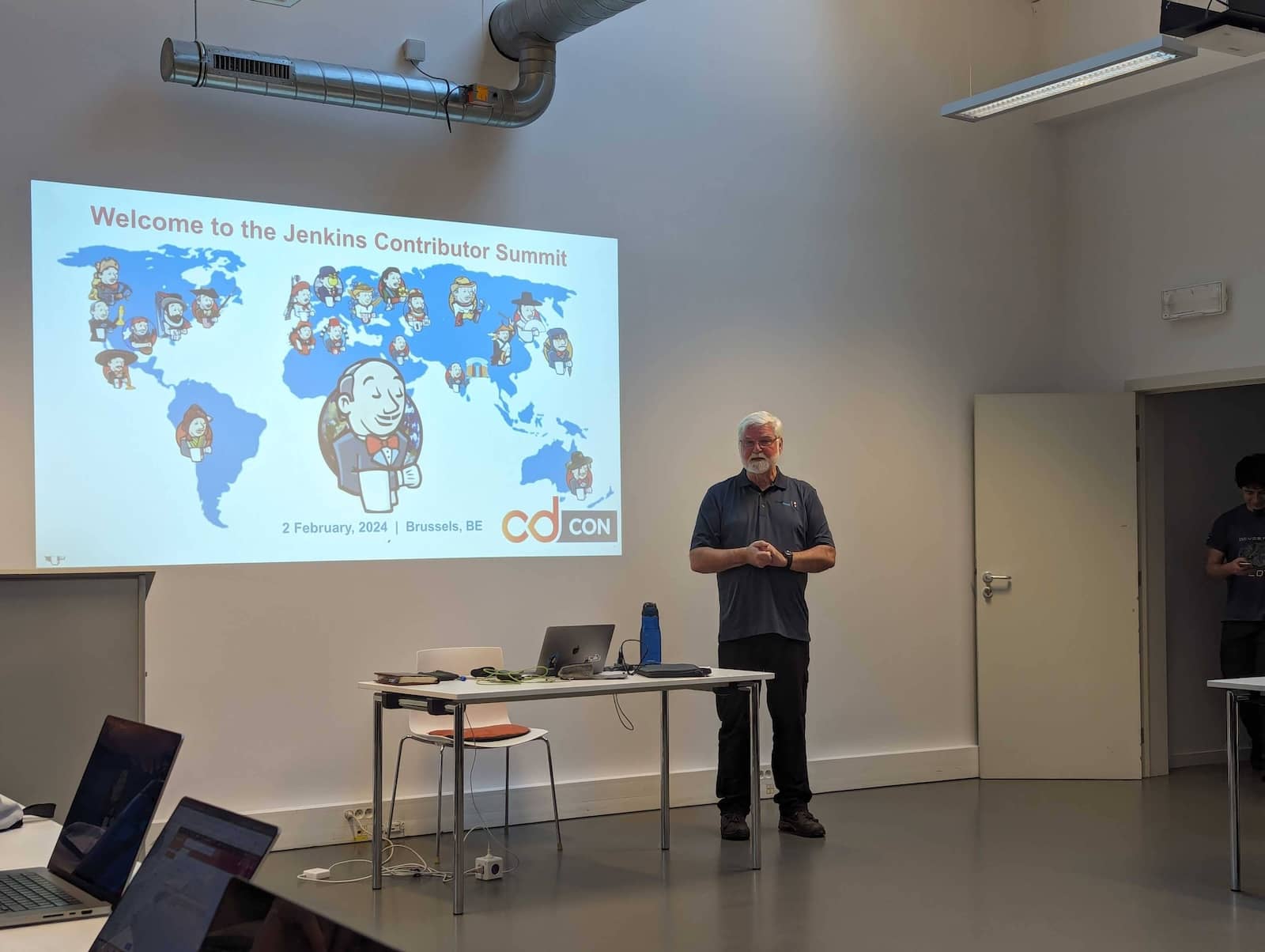
Mark Waite then provided a review of the current state of Jenkins as a project. This covered everything from user and maintainer statistics to what the future of Jenkins will hopefully look like.
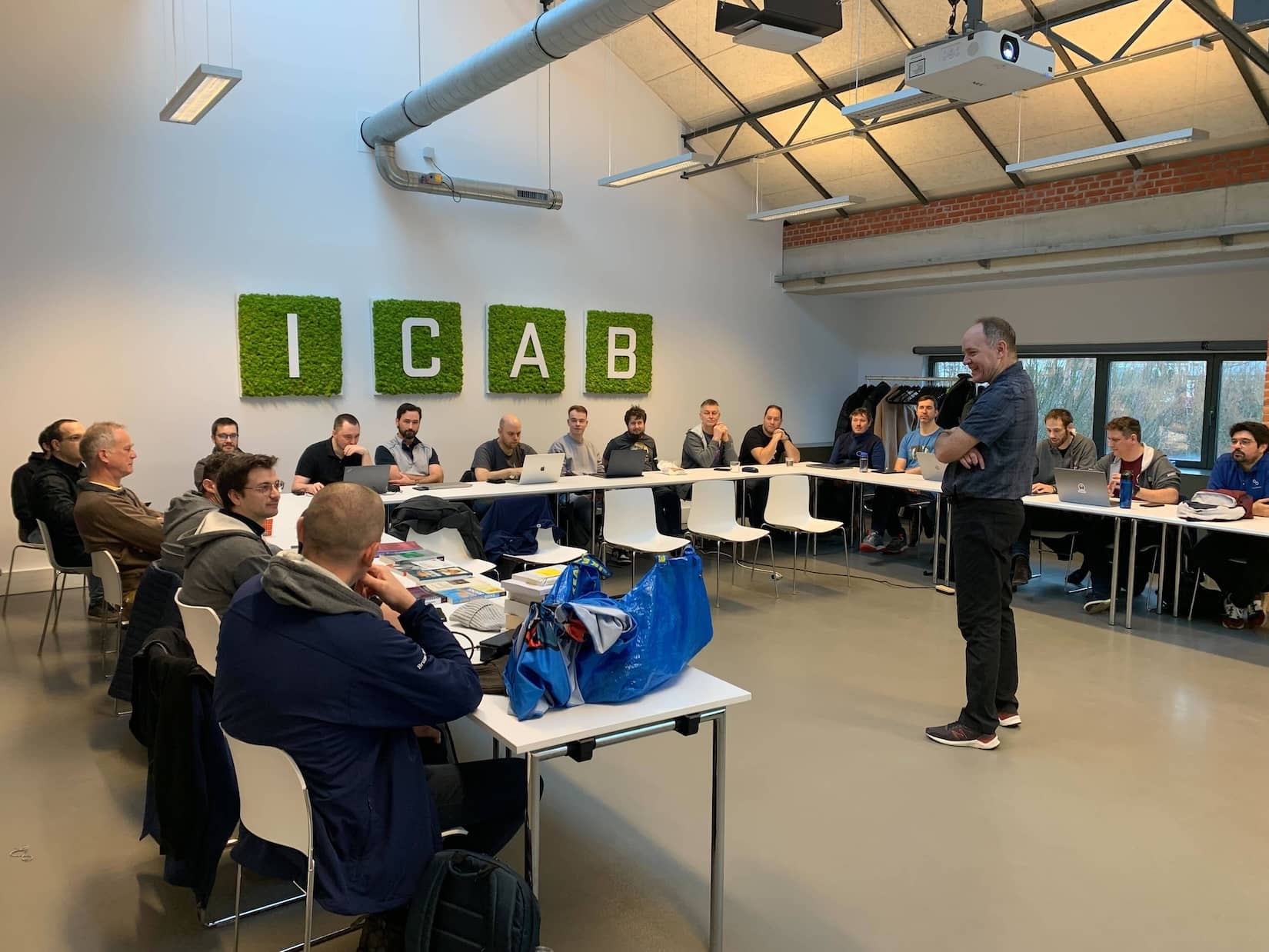
Following Mark, the Jenkins SIG leaders and Officers provided insights into their various areas of knowledge.
Damien Duportal, the Infrastructure Officer, presented first, reviewing how Jenkins Infrastructure has evolved over the last year and what we are looking forward to in 2024.
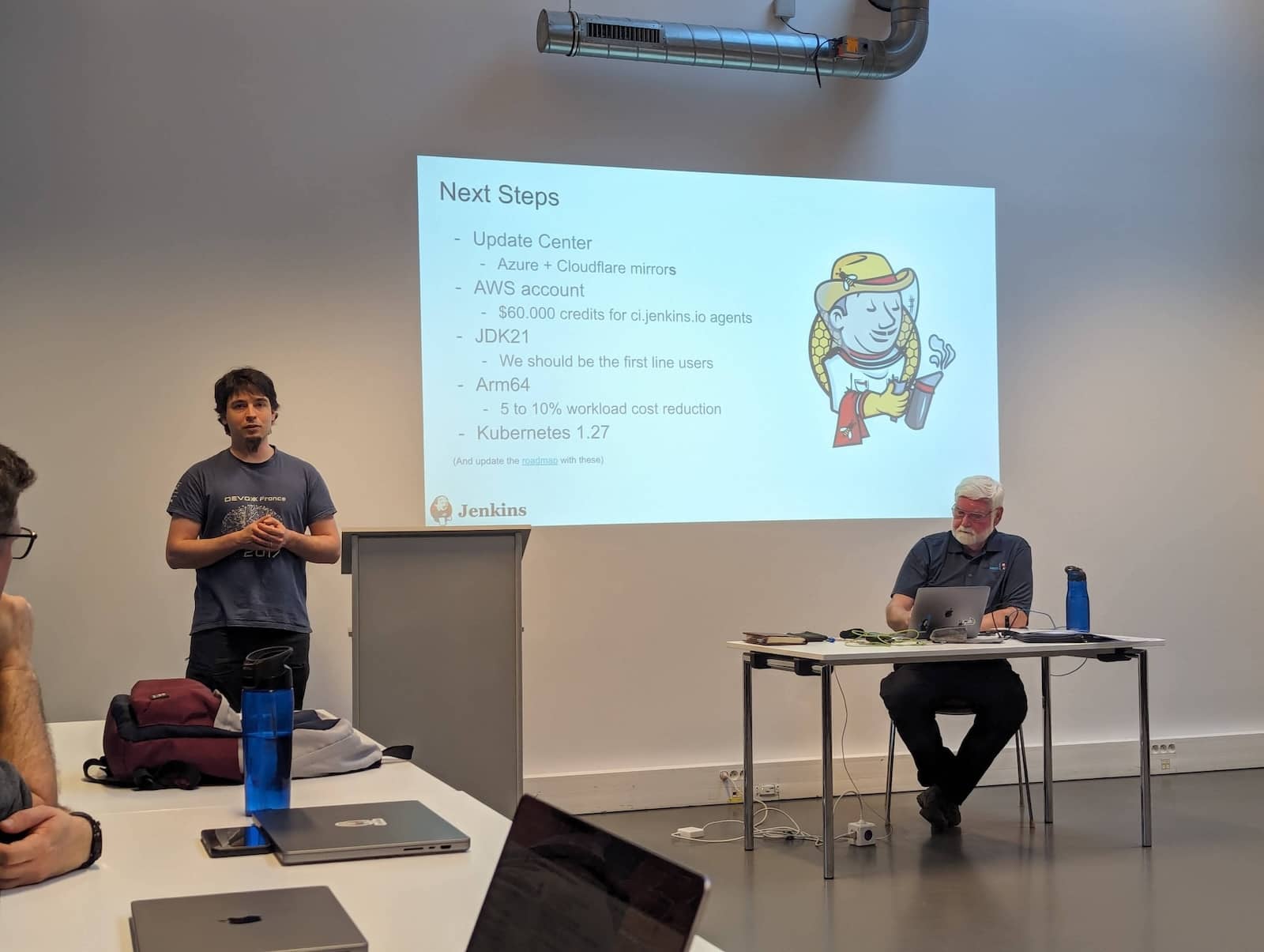
Next up was Tim Jacomb, the Release Officer, shared the successes and innovation that the project has experienced throughout 2023.
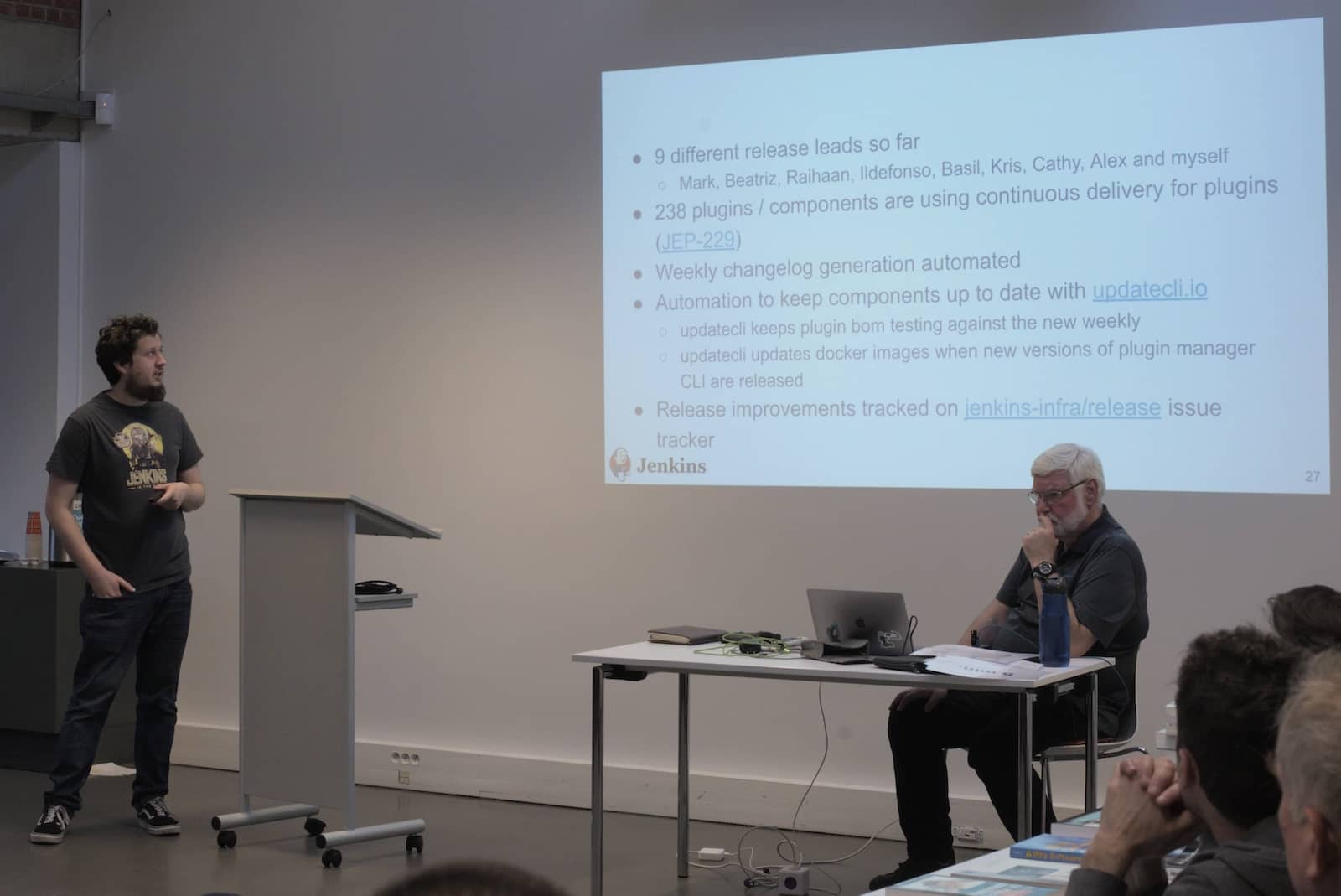
After Tim wrapped up his section of the presentation, Kevin Martens, the Documentation Officer, shared what we hope 2024 will look like for Jenkins documentation and Jenkins.io.
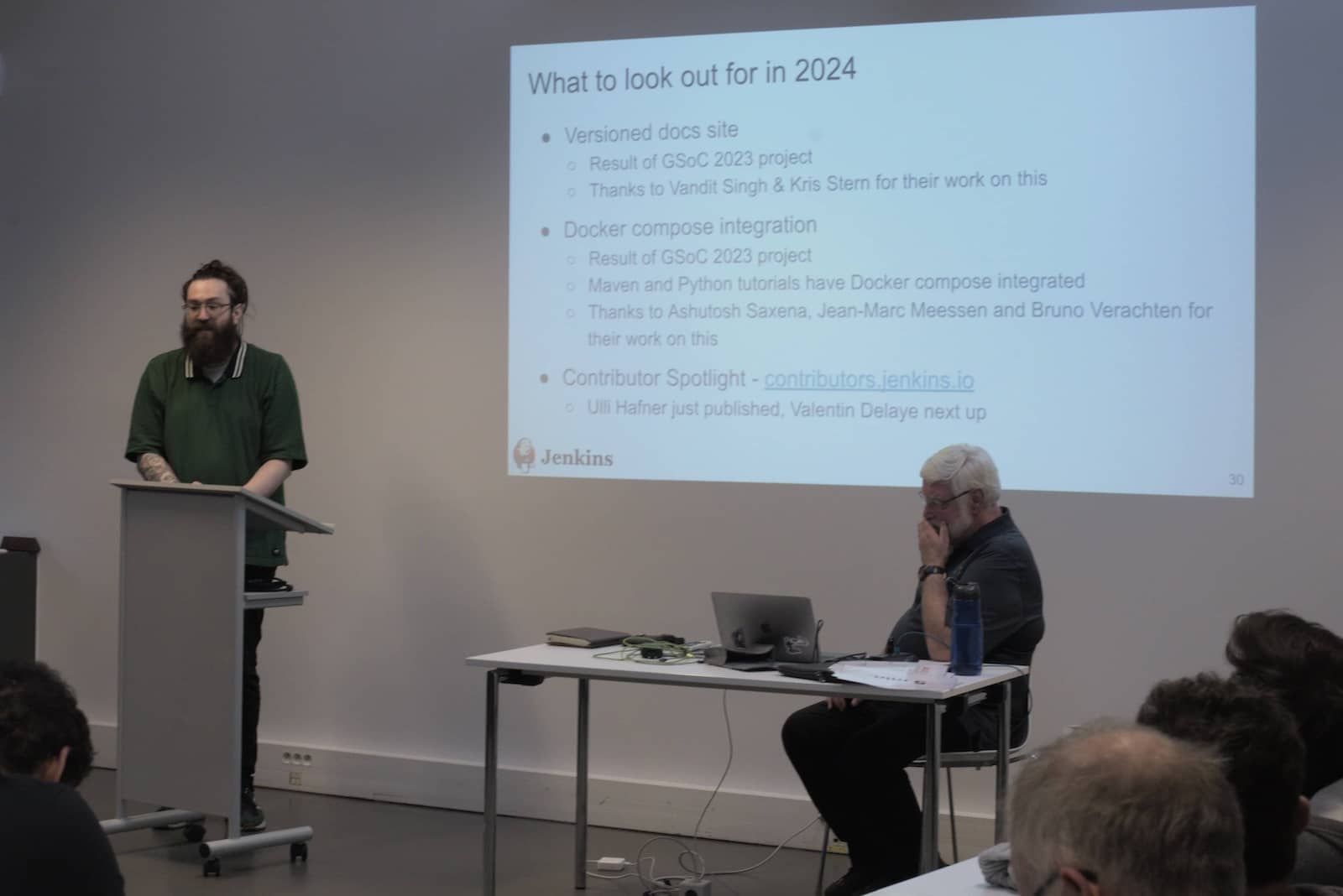
As the Advocacy & Outreach SIG leader, Alyssa Tong then recapped all of the events that Jenkins held or participated in during 2023.
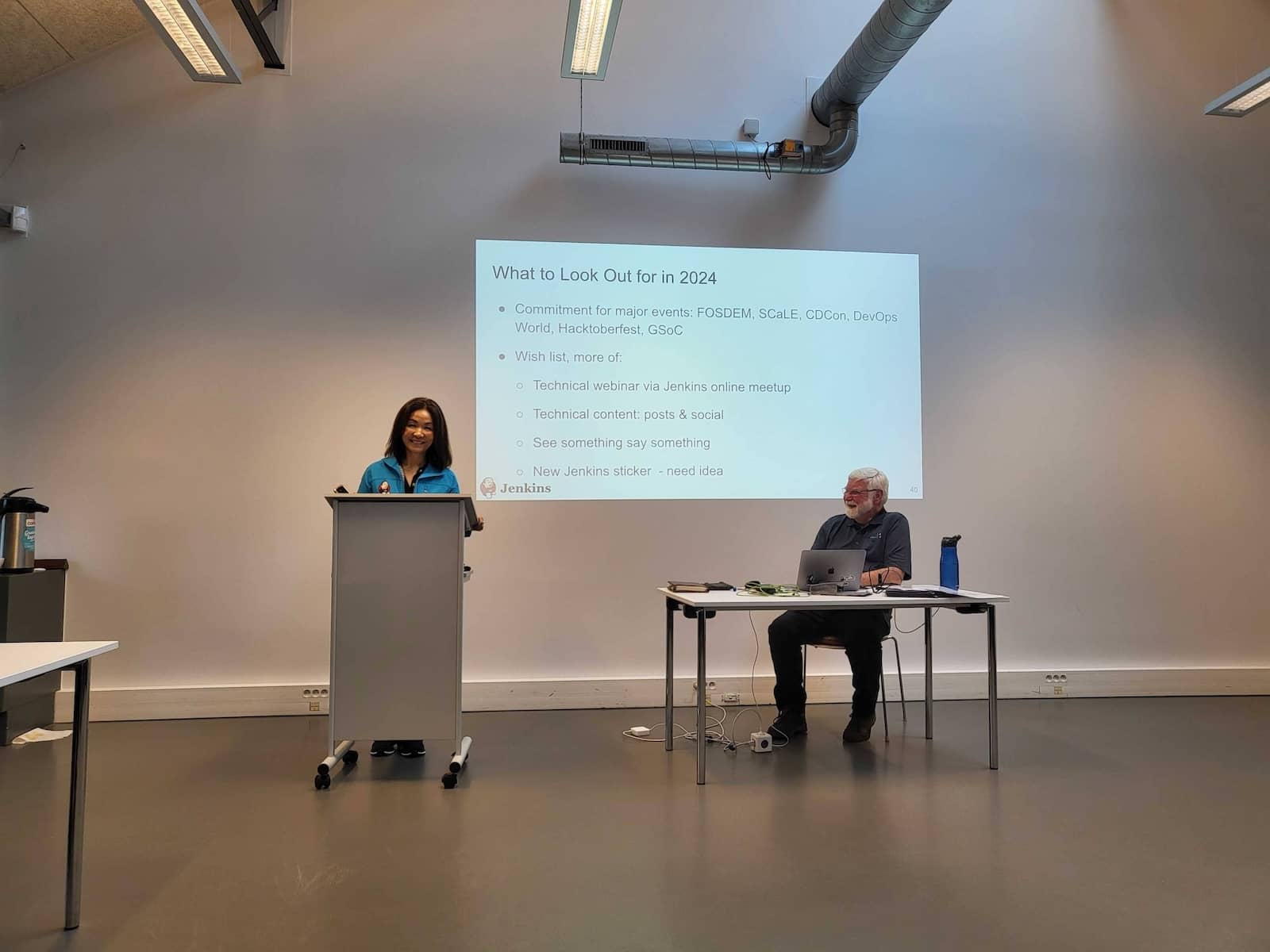
She also shared the exciting news that Jenkins has recently been won the Most Innovative DevOps Open Source Project award from DevOps Dozen
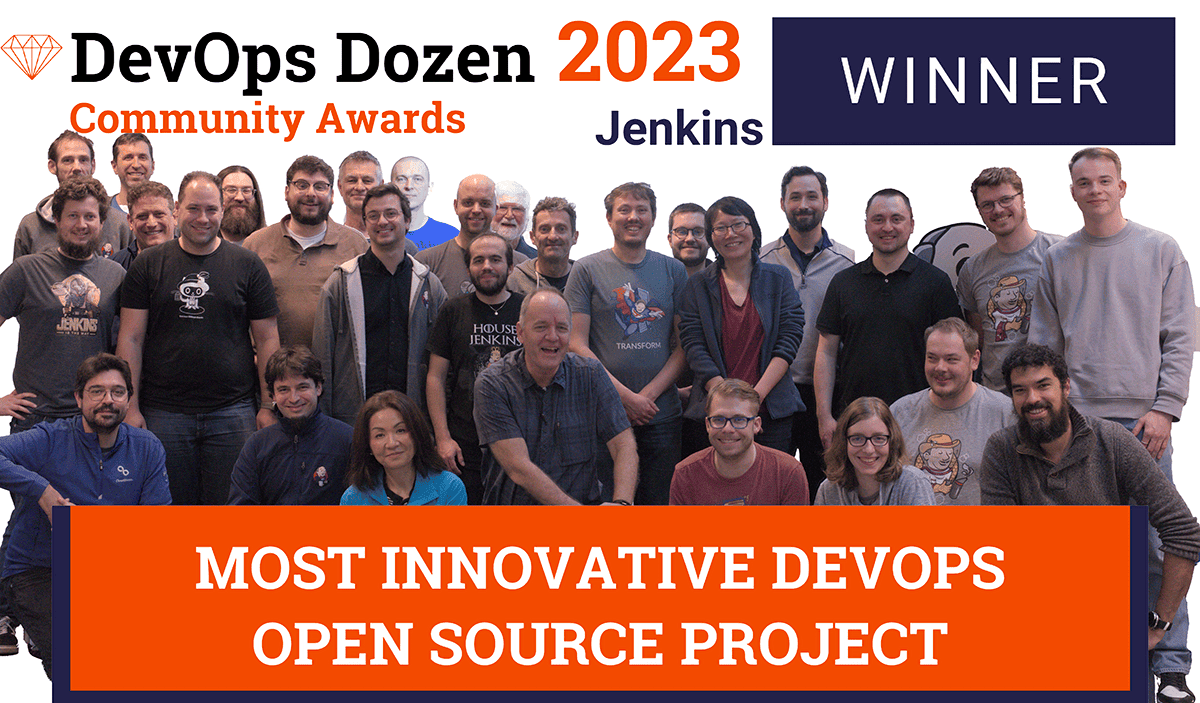
Following Alyssa, Wadeck Follonier, the Security Officer, reviewed the successes that the Jenkins Security team had over the last year. Wadeck also outlined tooling additions and changes to Jenkins that will help determine vulnerabilities and issues.
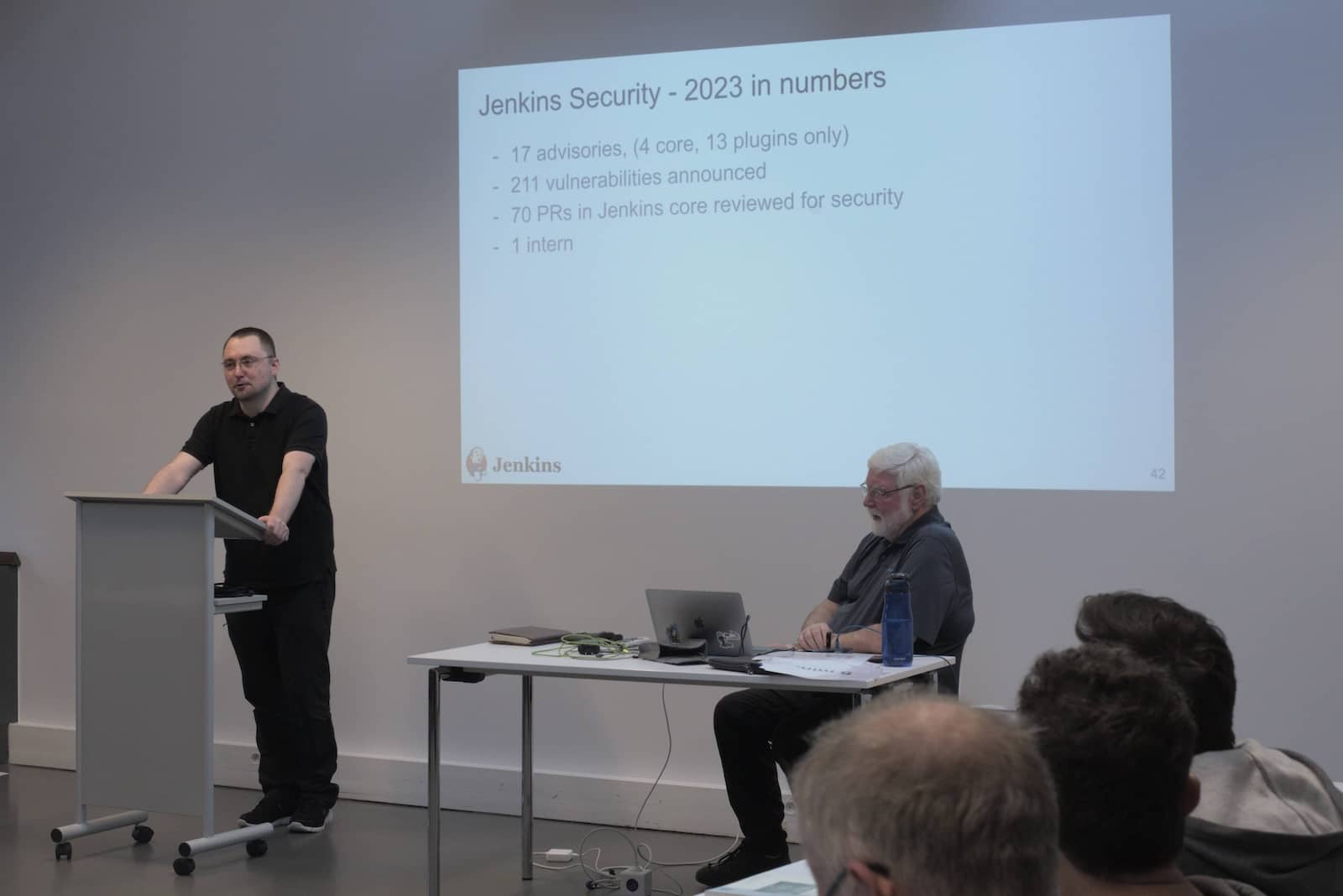
Tim Jacomb then took the stage once again to provide insights on the user experience of Jenkins. He highlighted items such as the Plugin Manager improvements, UI modernization, and the work that Jan Faracik has contributed such as removing the Yahoo UI, among other things.
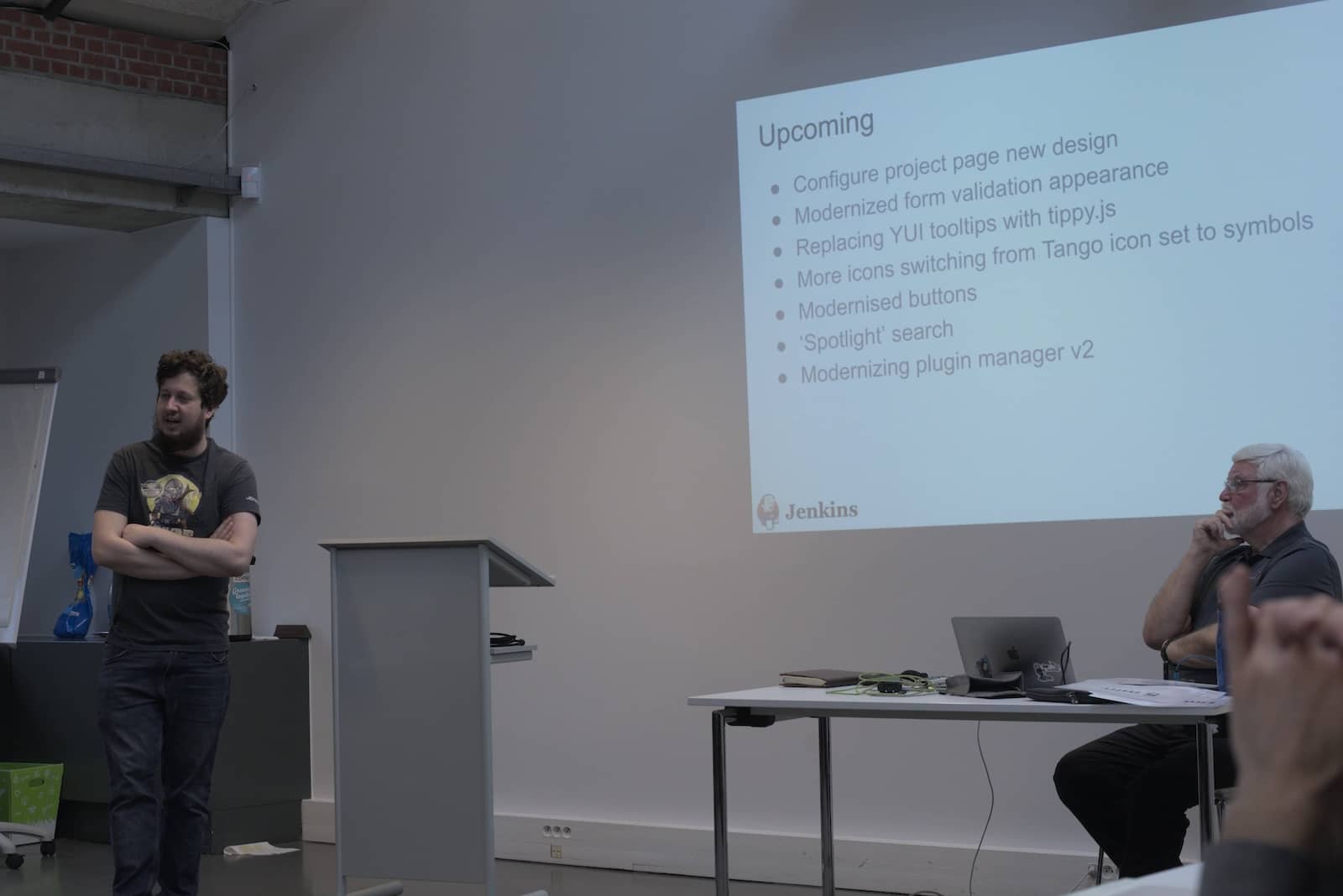
After taking some time to break for lunch, we returned to the contributor summit to hear Vincent Latombe sharing what was done in Jenkins to support High Availability/Horizontal Scalability for CloudBees.
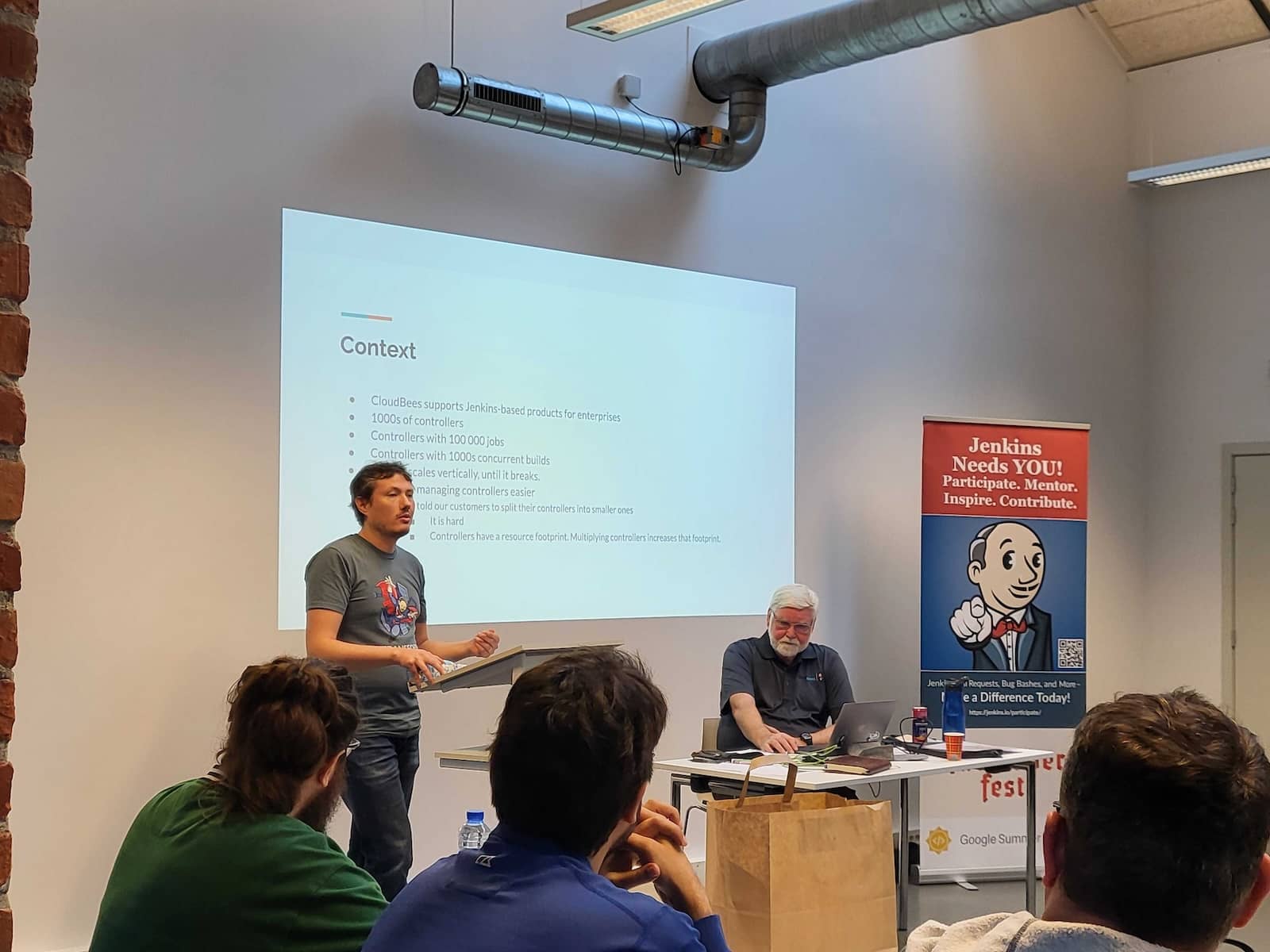
After Vincent finished, Oleg Nenashev provided an update and shared what the roadmap looks like for Jenkinsfile Runner.
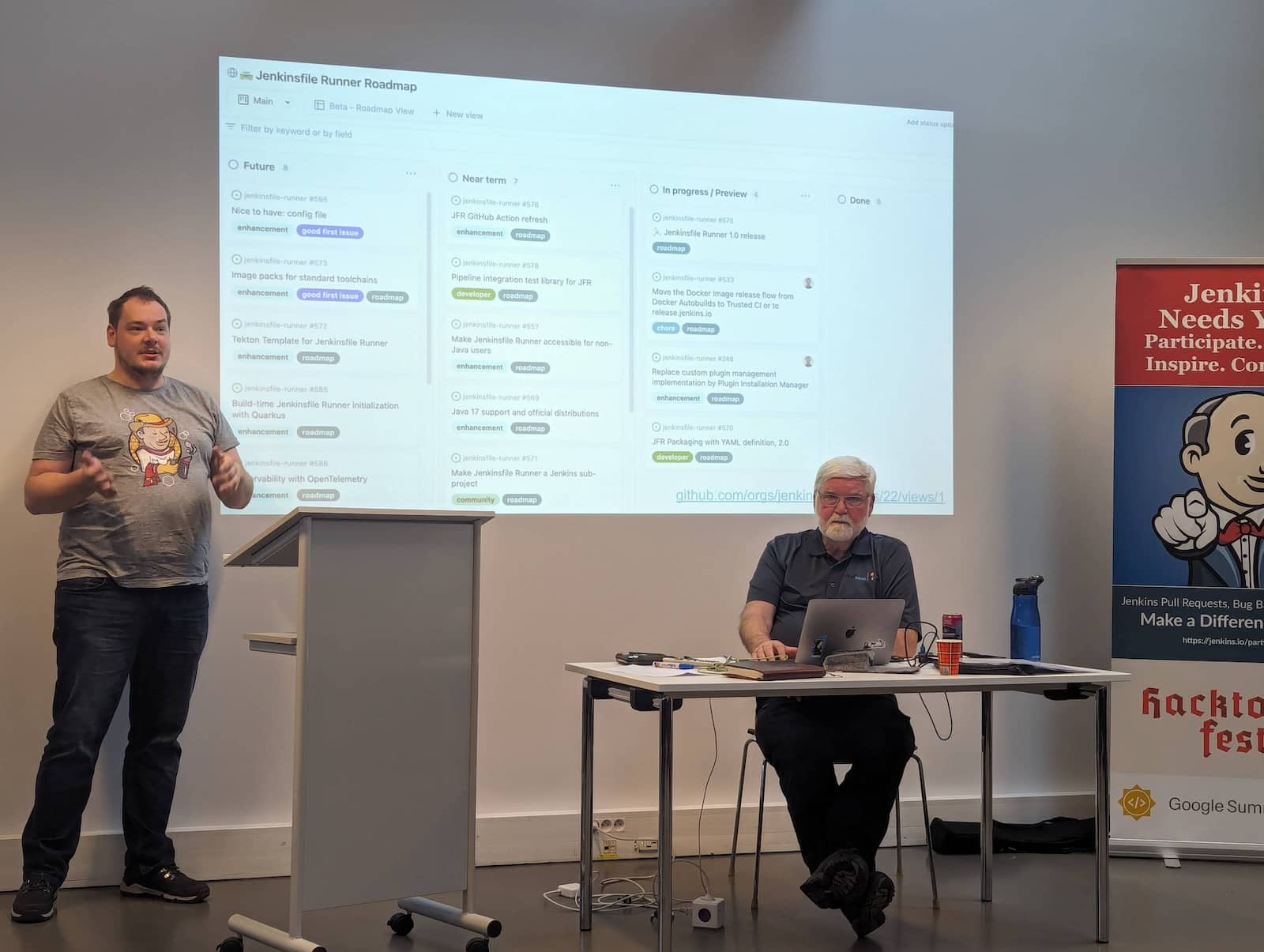
After Oleg wrapped up, Bruno Verachten provided insights and review from the Platform SIG.
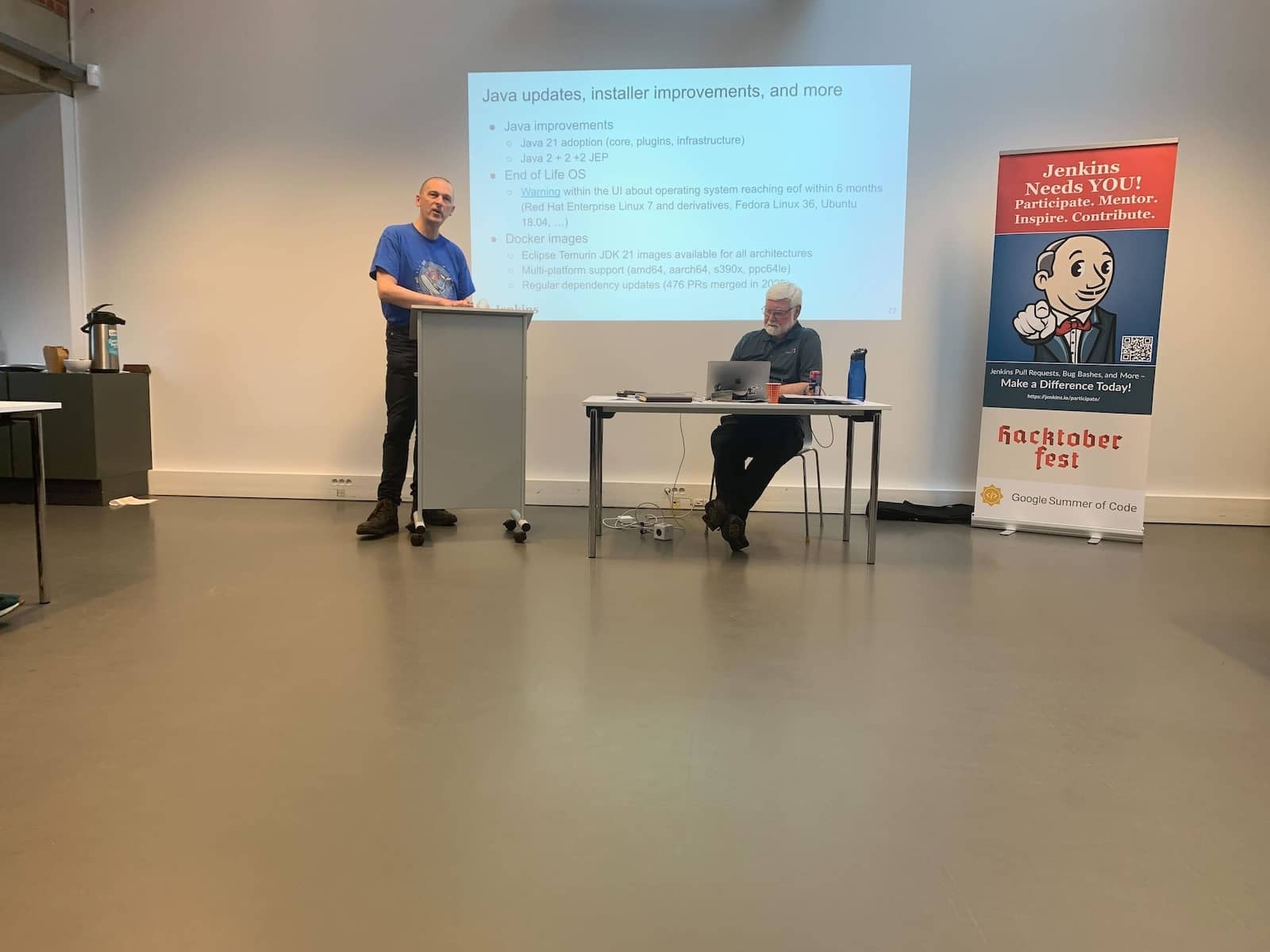
Once Bruno finished his presentation, Alexander Brandes and Damien Duportal shared and discussed the idea (and potential challenges) of removing Blue Ocean from the Jenkins base distribution.
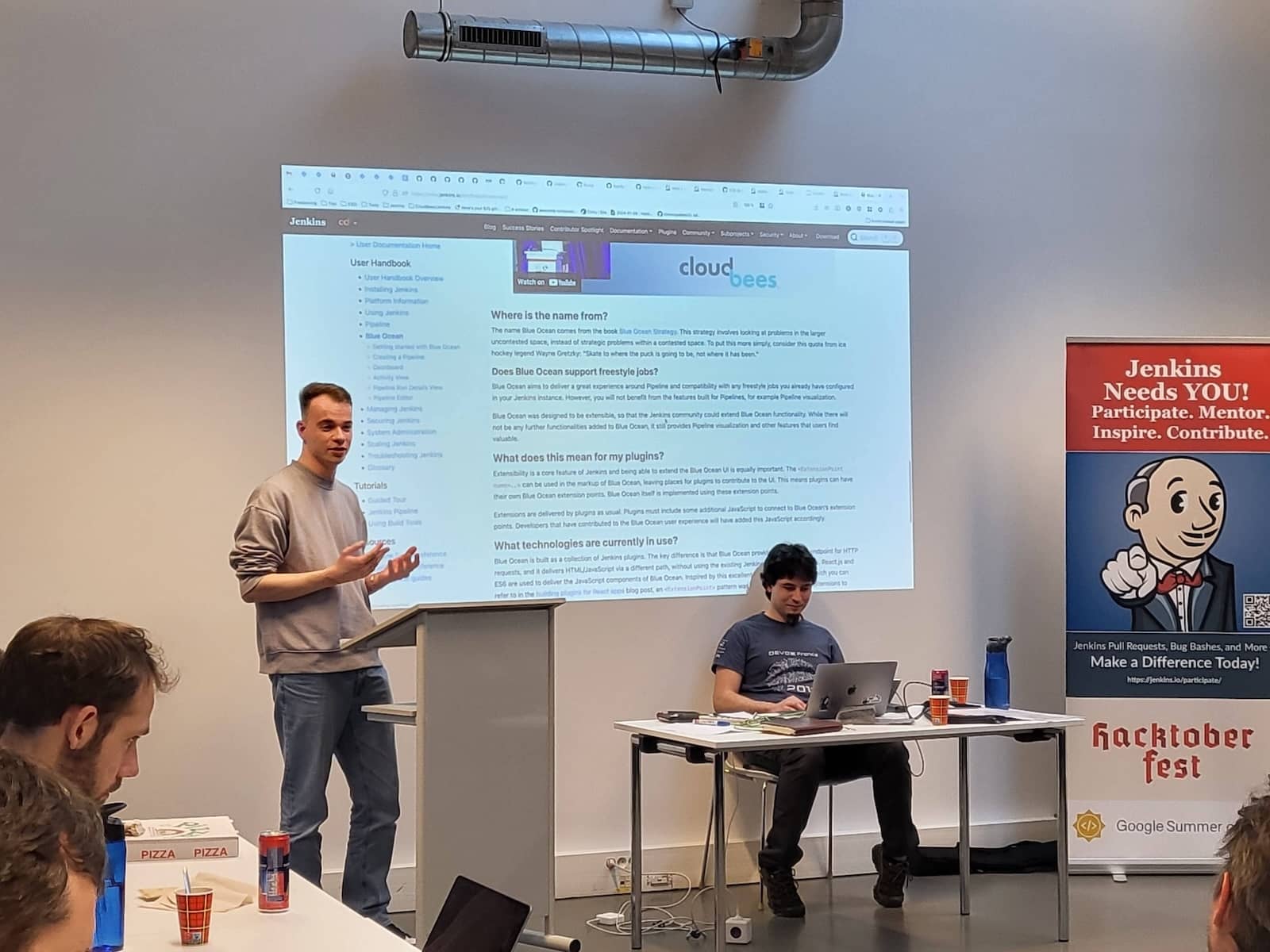
This is a topic that will continue to be discussed for the foreseeable future, until a reasonable solution and replacement can be decided upon.
After all of the presentations were finished, Basil Crow provided an overview and demo for Searching for API usage in plugins.
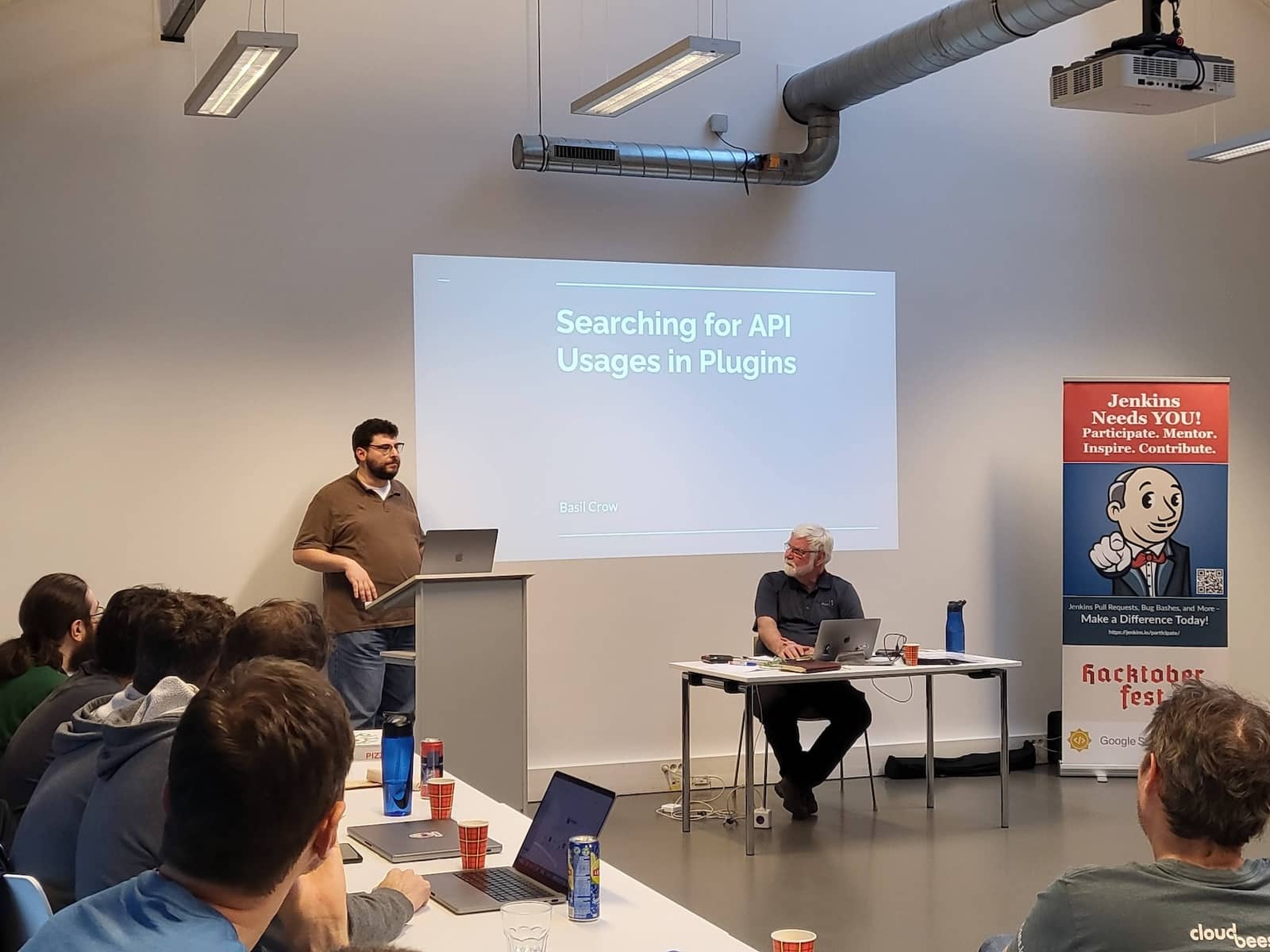
The presentation itself reviewed what the API usage might include, why it is helpful to perform this search, why migrations should be managed, and why empathy is a core value when it comes to development and engineering.
The Contributor Summit then concluded with a two hour group coding session, where attendees were encouraged to work with other members of the summit to work on any of the topics that were discussed prior. This provided an opportunity for people to work directly with one another, which would otherwise be impossible due to how far the Jenkins community stretches. Work that would typically be done asynchronously was instead immediately possible thanks to the proximity of the contributors.
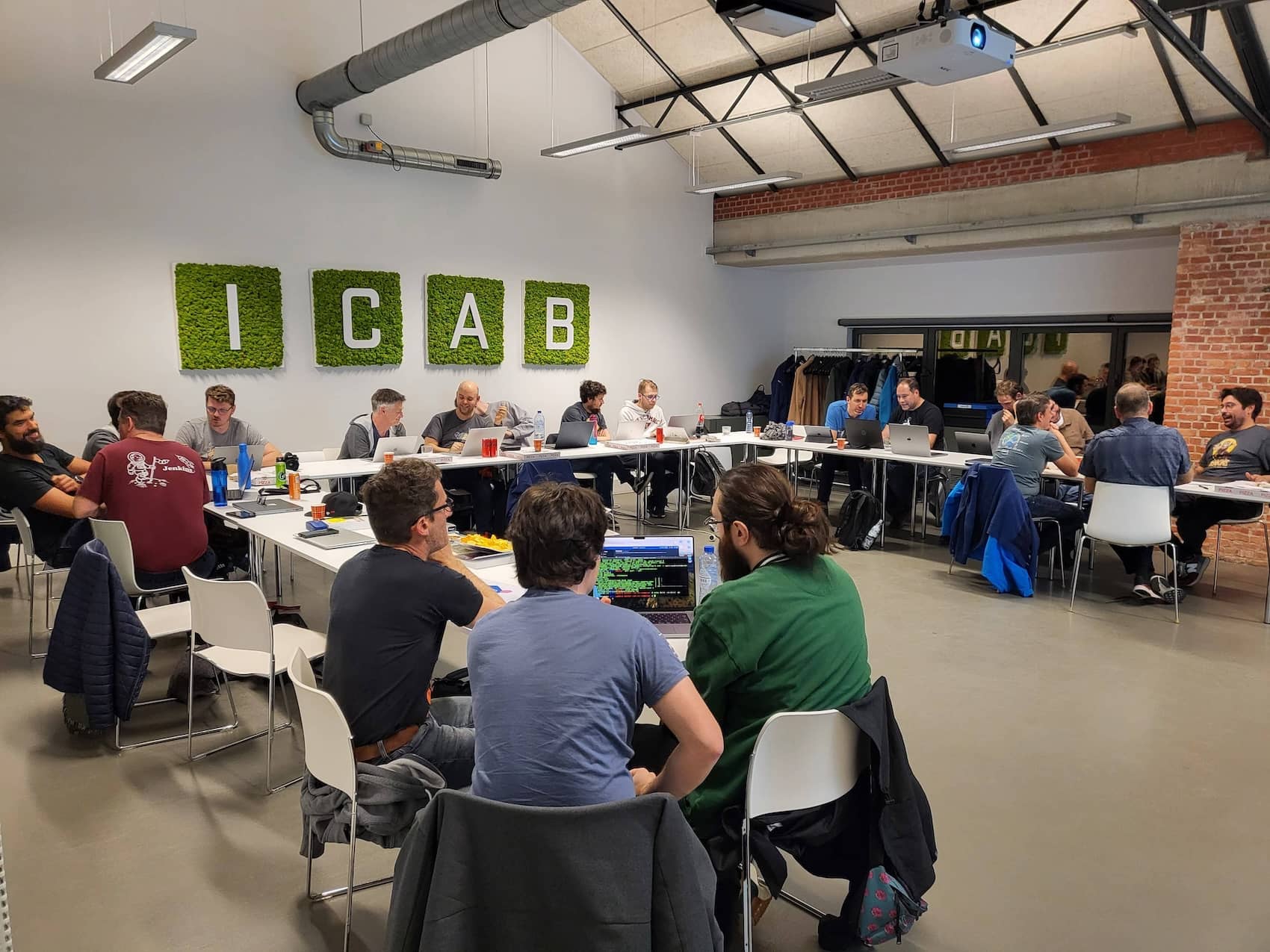
Now, with the Contributor Summit wrapped up, we shifted focus to FOSDEM and the rest of the weekend.
This year’s FOSDEM conference was as busy as ever!
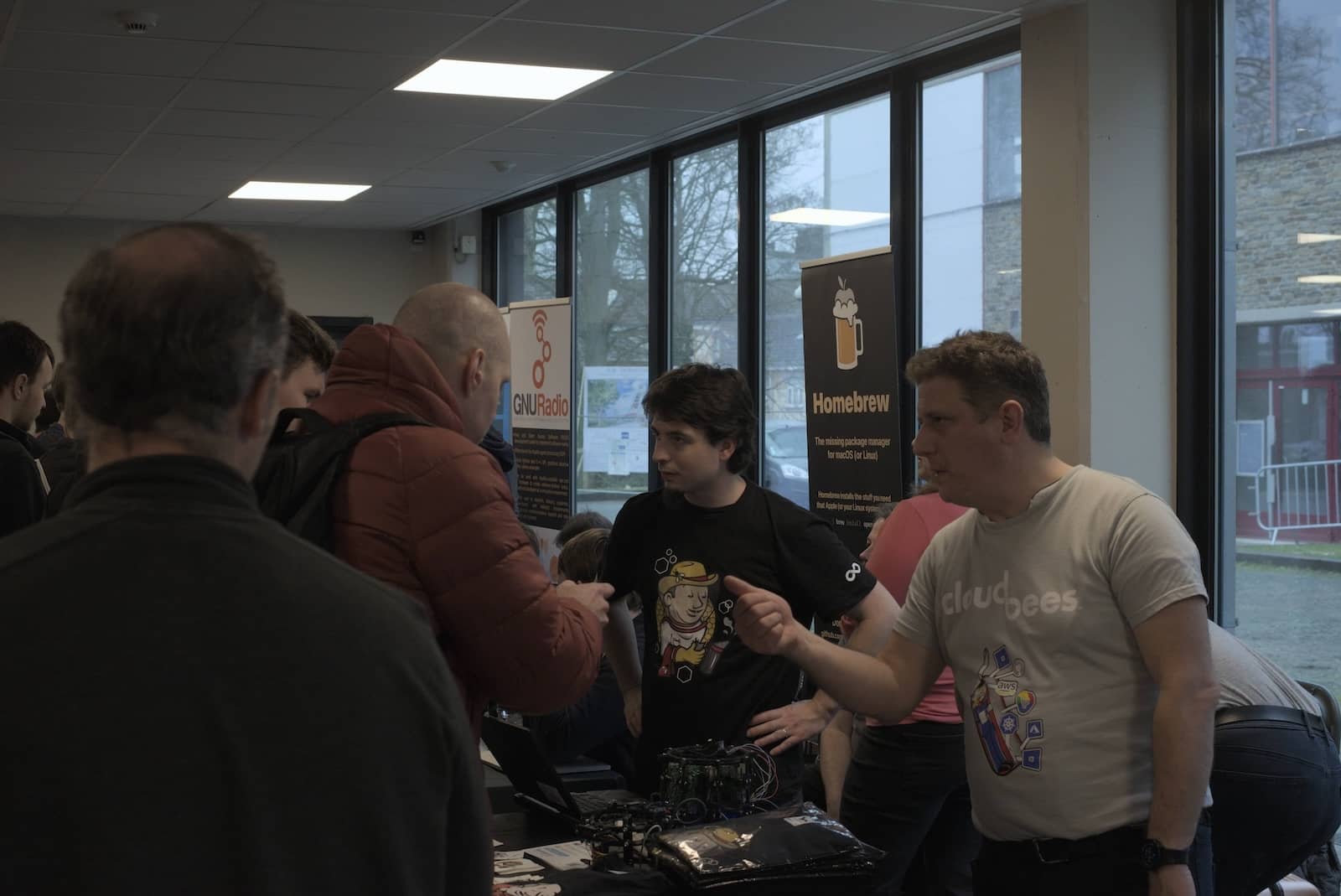
The Jenkins booth saw tons of visitors over the two days, and we even sold out most of our t-shirts! Bruno once again brought miniJen and a whole new Kubernetes (Roundernetes) set-up to help draw visitors in and have conversations around what Jenkins is capable of.
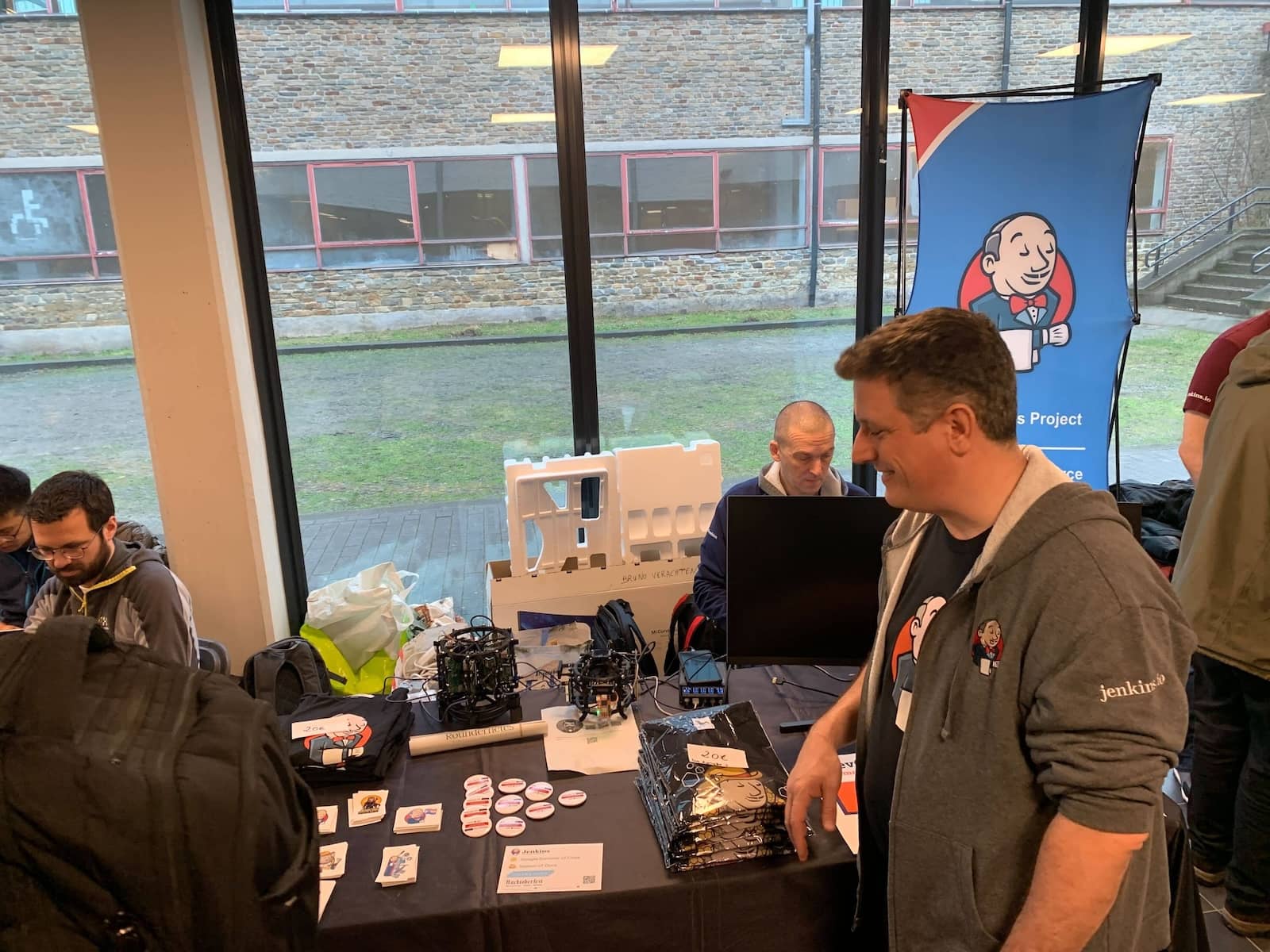
Over the course of FOSDEM, we received hundreds of visitors, evident by the lack of stickers that we brought home. There was very little downtime at the Jenkins stand, with visitors constantly coming by with questions about Jenkins present and future.
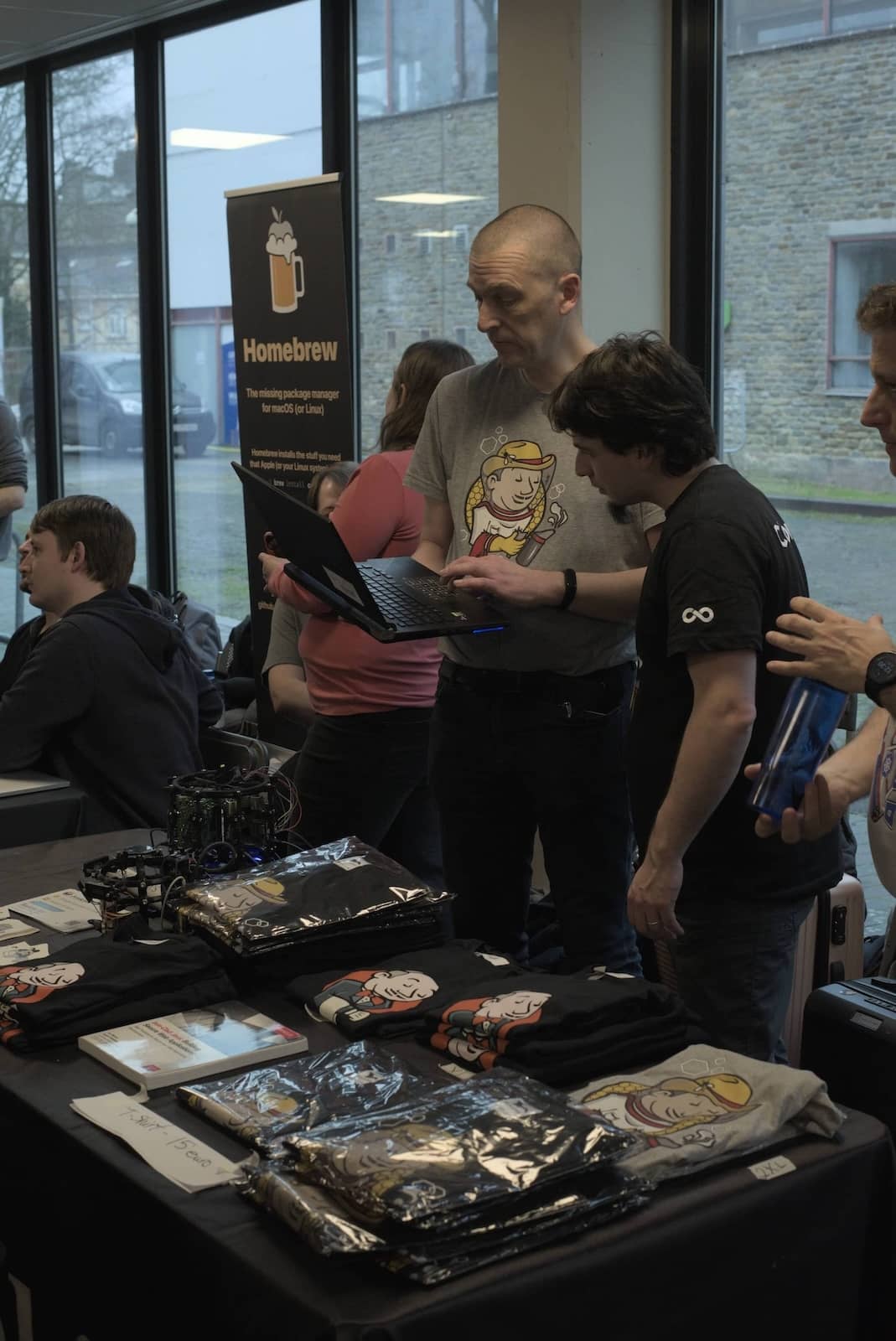
Overall, the Contributor Summit and FOSDEM were both wildly successful for the Jenkins community, proving again how important these events are.
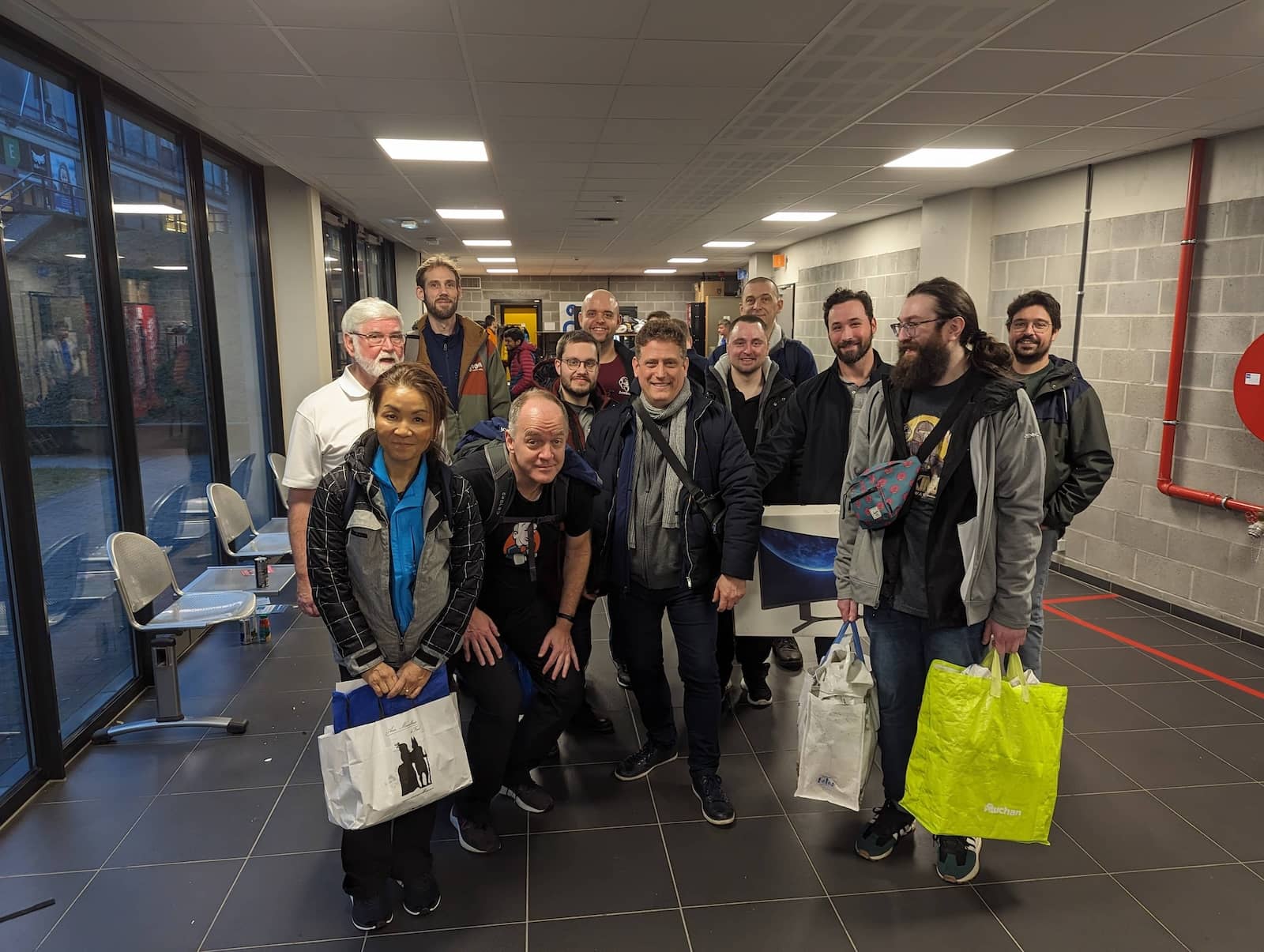
Thanks and gratitude
We want to share our deep appreciation to Betacowork for providing a room for the Jenkins contributor summit. The room was more than enough for all of the contributors to gather and share in the summit, in addition to providing great space for the group coding session. Thanks to Jean-Marc Meessen for connecting with Betacowork to secure the room for this year’s summit.
We also want to thank FOSDEM for once again allowing Jenkins to be part of the event. It was a wonderful experience to attend the conference and share Jenkins with the open-source community.
We would also like to thank both CloudBees and the Continuous Delivery Foundation for donating the shirts, socks, and stickers that occupied our booth for the weekend.